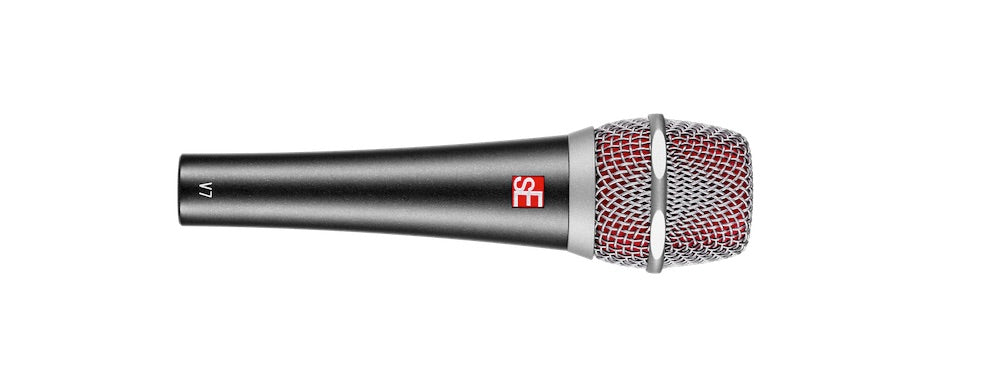While these are not technically reviews, we'd like to share five of our favorite microphones, some of which might be new to you.
Back in my days of college radio, I was introduced to the Shure SM7 microphone. While it was a staple in our studios for voice work, little did I know how popular its successor, the SM7B, would become in the last few years. While you may not know it by name or model, you've seen the SM7B in use in music videos, news programming, video streams and on podcasts. Right now, it seems to be the microphone of choice for voice work, whether broadcast or music. The SM7B is one of those microphones that does lots of things well. Its smooth sound works well for studio, and live work, both music and spoken word. Get more info here.
If you need a USB microphone like the SM7B, make sure to check out the Shure MV7. It's similar in style to the SM7 but it's smaller, with a newly-designed transducer element featuring improved acoustic isolation, active digital audio circuitry and a USB connection.
Do you need a piano microphone for under $250? As you might know, doctors sometimes prescribe medicines for off-label uses (not what the drug was intended for). In this case, the Audio-Technica U851RB was designed to be a boardroom microphone, but we figured out that it will also work really well for grand piano. There's really not a way that we know of to get better piano sound for the same amount of money. Follow this link for the full story.
World's best choir microphone? Several years ago, we teamed up with one of clients in an experiment and accidentally "created" what might be the best choir microphone available. In another off-label use, we highly recommend the Heil PR30. In our tests with other microphones, the PR30 offers about 10 dB of additional gain before feedback, requires very little equalization when compared to other microphones more typically called "choir microphones" and are not overly sensitive (picking up everything else around the choir, too). For more information, read these two stories here and here.
You've heard of the Transformers™, but what about transformer-less? The Audix OM6 vocal microphone is a sleeper. Not many have heard of it, not a lot of people use it, but they're missing out. The OM6 features extended low frequency response, a tastefully tailored rising mid-high boost, natural sound reproduction, resistance to feedback, and ability to handle high SPLs in excess of 144 dB without distortion. See all the details here.
What's the best microphone $99 can buy? Everyone has an opinion, and most microphone manufacturers have a microphone at that price point. And they all sound "as good as (or better than) the Shure SM58", which has been the industry-standard for about 50 years.
We've never listened to the sE Electronics V7 side by side with an SM58, but the clients who buy them seem to prefer what they hear from the V7. Here's a snippet from sE's marketing material, but it's absolutely true. The V7 is "custom-developed for a crisp, open sound that perfectly captures your voice in the most natural way you've ever heard on stage - and its sophisticated supercardioid capsule design helps isolate your voice from other instruments, ensuring vast amounts of gain before feedback."
But don't take my word or theirs for it. Buy one, try it, like it, or send it back. We think that you'll find that the V7 is worth the risk. Click that link for more info or call us at 800-747-7301 and we'd be happy to talk with you.

